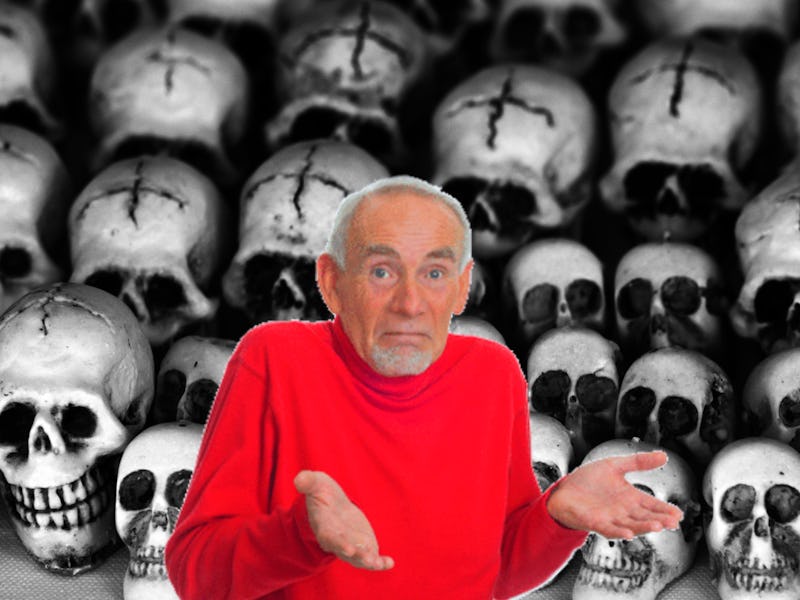
A gladiator trainer on the now-defunct show Spartacus once sneered at humanity’s most pervasive fear: “A gladiator does not fear death. He embraces it, caresses it, fucks it.” The show, perhaps unsurprisingly, has faded into oblivion, but its comment on death and anxiety has not. As scientists have just found, some people really aren’t afraid of death. And those people aren’t necessarily gladiators.
In a study published this month in the journal Religion, Brain, and Behavior, a team of British scientists led by Coventry University psychologists reveal that they’ve determined which groups of humans are the least afraid of dying. They supposed from the outset that religious people, armed with a belief in the afterlife, would fit into this category, and they found this to hold true. But they also discovered that religious folks shared that trait with a fundamentally different type of people: atheists.
“This definitely complicates the old view, that religious people are less afraid of death than nonreligious people,” lead author Jonathan Jong, Ph.D., an anthropologist at Coventry University, said in a statement. “It may well be that atheism also provides comfort from death, or that people who are just not afraid of death aren’t compelled to seek religion.”
Their study — a meta-analysis of 100 existing science articles on people’s experience with death anxiety — searched for patterns that gave credence to the idea that religiosity and death anxiety were linked. Analyzing data on over 26,000 people between the years 1961 and 2014, they found, as expected, that believing in God or an afterlife or practicing religious behavior, like going to church or praying, was correlated with less anxiety about death — albeit weakly. (They’re careful to note the important caveat that over half of the studies they looked at showed no link between religiosity and fear of death at all.)
They made their discovery about atheists when they considered that the relationship between religiosity and fear of death might not linear but hill-shaped, as scholars had suggested before. Here’s what they thought it might look like:
People who don't have a robust worldview are thought to be most scared of death.
The far right side of the graph takes the super-religious people into account, and atheists are acknowledged on the left. This model suggests that the people who are most afraid of dying are the people who aren’t quite sure — the people in the middle ground between staunch atheists and believers. Sure enough, almost 100 percent of the studies that were robust enough to test this idea supported the theory.
What seems to protect atheists and religious people from their crippling fear of dying isn’t what they believe but the fact that they believe in anything at all. The researchers note that this is the central concept in “Terror Management Theory,” which has been proposed to explain how exactly humans deal with the crippling reality of wanting to live but knowing they’re going to die. The theory says that we do so by bolstering our “worldview”: When we’re faced with the terror of death, we try to root ourselves as firmly as possible in what we believe (regardless of what it is), and this staves off our fears of dying. Religious people are thought to have really strong worldviews, and this is why the theory predicts they’re not as afraid of death. What hadn’t really been considered in the past is the idea that atheism might count as an equally strong worldview, but this study suggests it might be true.
Of course, while this study covered a huge sample size, its results can’t be considered definitive because it wasn’t totally inclusive — it counted mostly American beliefs, and dealt only with Abrahamic religions. In the paper, the researchers note that the link between the fear of death and religious feelings might change from location to location, and it might vary depending on the religion in question.
Still, the study at least provides us with a bit more insight into the thoughts of people who laugh in the face of death, like our death-fucking ex-gladiator Doctore: Whether it was a staunch faith in a higher power — or an unwavering conviction that nothing matters but the gladiator’s brotherhood — it seems that it was belief, period, that defended him from humanity’s biggest fear.